The Ready Retriever
With the right preparation, you can set your dog up for success on opening day
With the right preparation, you can set your dog up for success on opening day

By Hampton Bourne
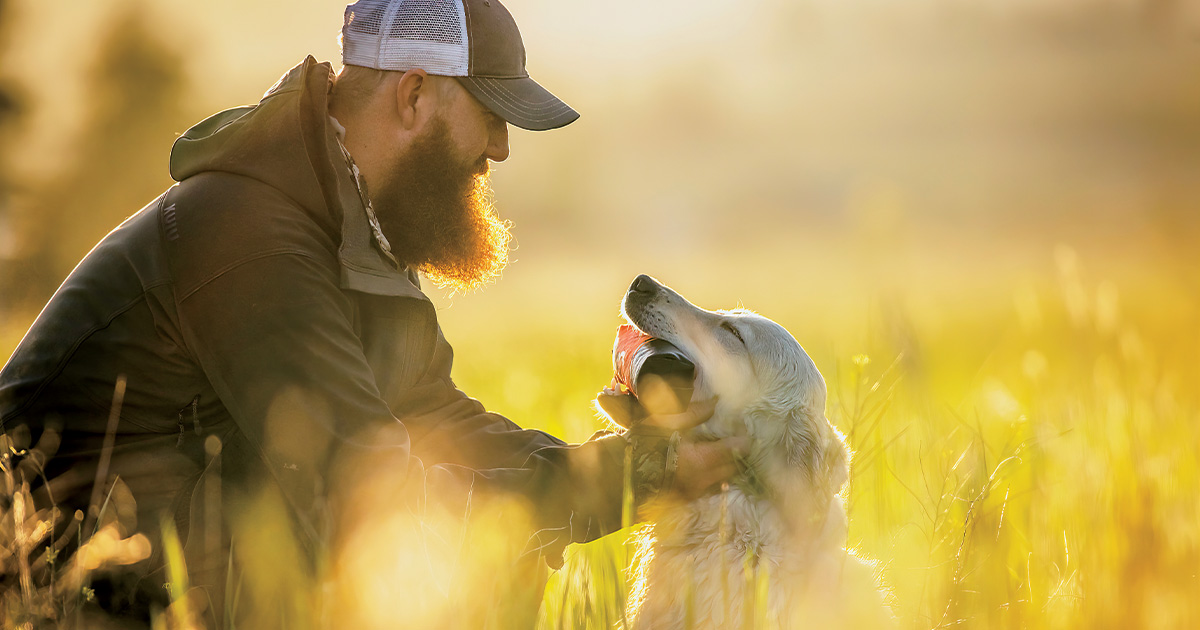
Football season is finally here. I love it when that first pigskin hits the field, because I know that football fans, as well as waterfowl hunters and their retrievers, are standing on the brink of their favorite time of year. For me, that first football game and opening day of hunting season restore a sense of balance to the world.
A successful football team puts in hours upon hours of practice and conditioning before it ever takes the field for an actual game. You and your retriever should subscribe to a similar preseason regimen, because taking a dog straight from the couch to a real hunt can be like asking an old duck hunter to run passing routes at the Super Bowl. When retrievers aren’t tuned up for hunting season, the likelihood of injuries, fatigue, and poor performance increases. A program of off-season training can make a world of difference. Here’s some expert advice to help make sure your retriever is ready.
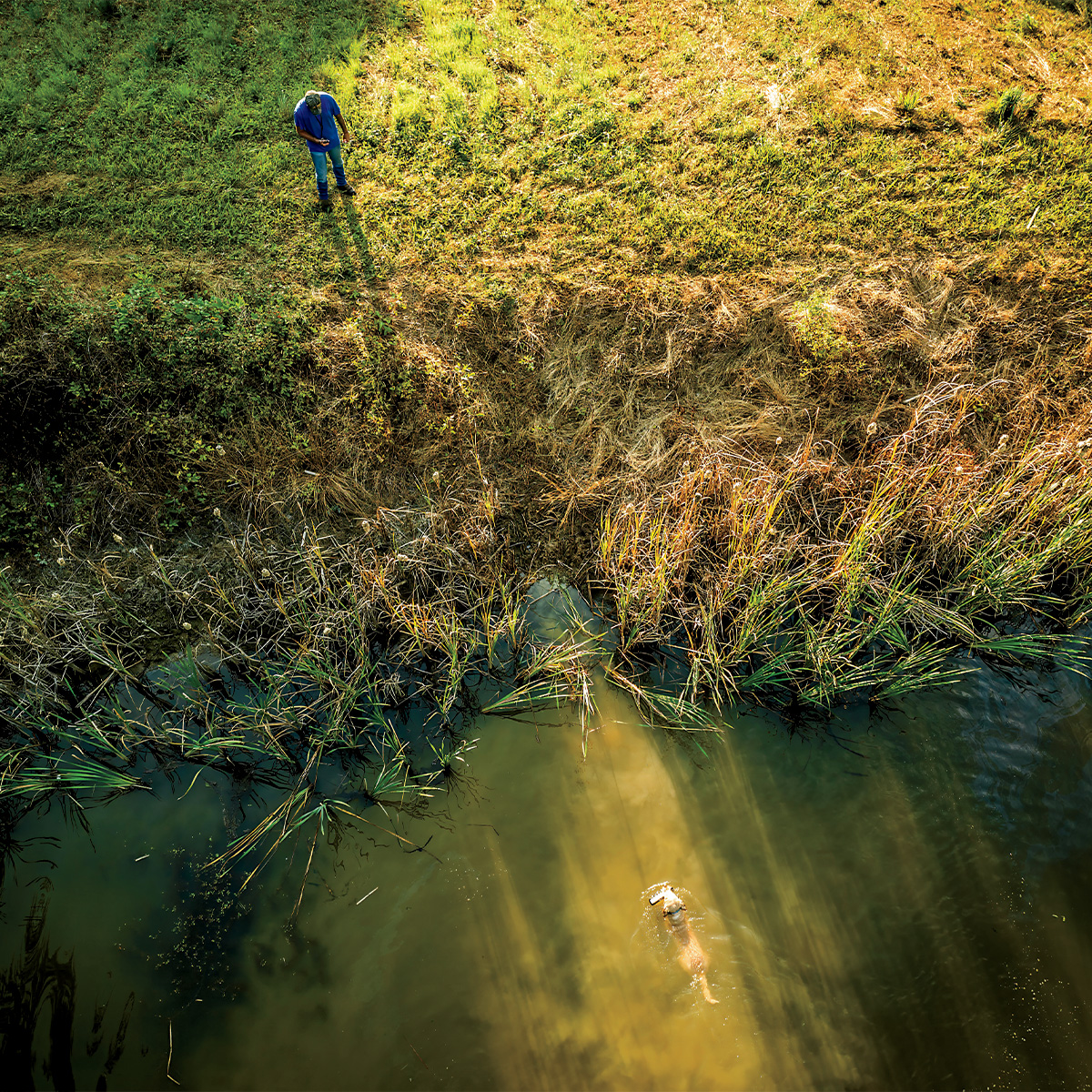
To avoid injuries and get the best performance from your retriever, adhere to an off-season training and conditioning program.
Mike Stewart is one of the most recognizable retriever trainers in the waterfowling world. He and his wife, Cathy, are the founders of Wildrose International, a premier breeding and training operation with locations across the country. Stewart says that neglecting fitness is one of the most common off-season mistakes. “When it starts getting hot, many dog owners quit training,” he says, “but a dog has to be in tip-top physical condition when the season starts. If a dog is overweight, he’s more prone to overheating because he has too much insulation. Being overweight also strains the bone structure, including the knees, elbows, and hips. On the other hand, dogs that are underweight won’t have enough endurance and can burn out quickly in the field.”
Jessie Lee Richards, the owner of Full Throttle Kennel in Campbellsport, Wisconsin, adds, “Dogs are prone to injury if they aren’t properly conditioned. You wouldn’t run a marathon without training for it. At a minimum, make sure your dog is getting daily walks and runs. However, swimming is the best exercise for a gundog. It’s low-impact and won’t strain the dog’s joints or risk ligament damage and will simultaneously sharpen one of his most critical skills. I’ve seen several dogs tear an ACL after going straight from the couch to long, hard runs. As dogs age, that risk only increases. Kayaking or canoeing with your dog in the summer is great conditioning, and it’s also a great way to practice other skills, like retrieving and navigating in and out of a boat.”
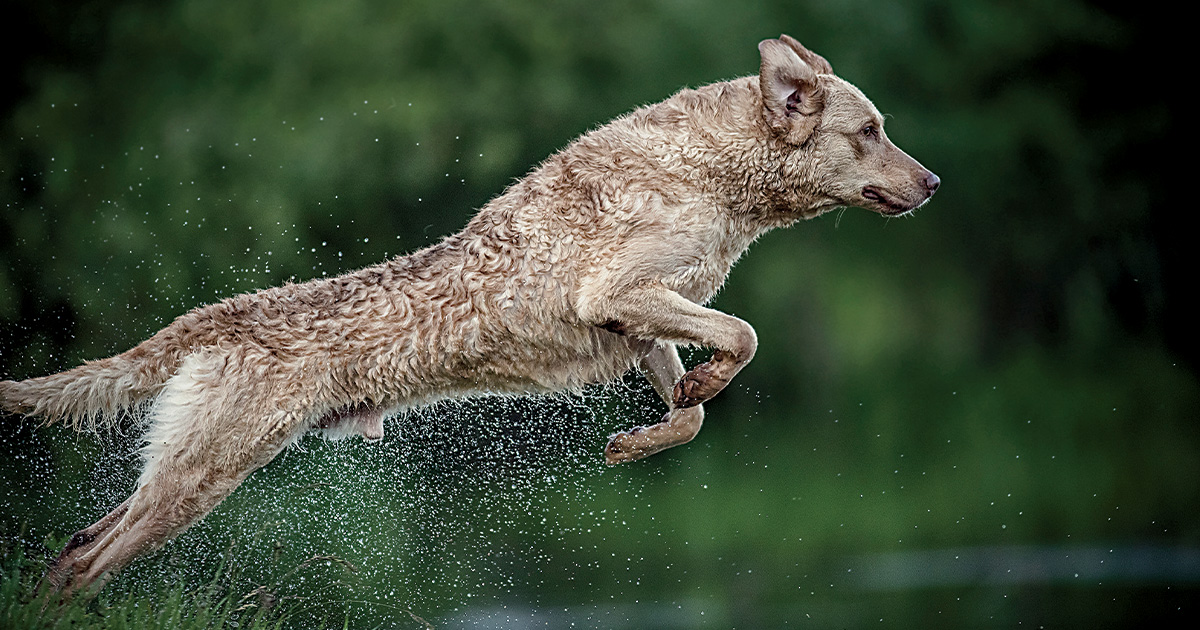
It’s important to transition your retriever from the off-season to the hunting season by setting up training scenarios that mimic the conditions you’ll experience in the field or marsh.
Richards advises retriever owners to pair exercise with appropriate dietary adjustments. “We don’t recommend changing a dog’s food from season to season,” she explains. “We just scale back portion sizes when the dog isn’t burning as many calories. As the season approaches, you want to be able to feel a dog’s ribs but not see them with the naked eye. If the ribs are clearly visible, the dog is too skinny.”
Stewart adds that a consistent feeding schedule is also important. “The best time to feed a dog is 30 minutes to an hour after his afternoon exercise,” he says. “He’ll digest that food overnight and stockpile energy for the next day. It takes about 12 hours for a dog to convert food to energy. If you feed a dog the night before a hunt or a field trial, he will be ready to go the next morning. If we hunt in the afternoon, I’ll feed him right after we get home.”
Stewart notes that dogs are extremely place-oriented. They are quick to learn, but they often have a hard time transferring what they’ve learned to different environments or situations. You can teach a dog a new skill in your backyard, but he might struggle with the same skill in a different location. That’s why transitioning from off-season training to real hunting is crucial for dog owners. “Transitional training is practicing as you will play,” Stewart says. “For some reason, most people fail to take the time to duplicate a hunting situation before they take a dog into the field. Transitional training is the process of cementing skills from the yard to the duck blind.”
Stewart adds that dog handlers should tailor training to the kind of hunting they do. “If you’re hunting in a specific environment or condition, expose the dog to that before the hunt. For example, I have had wonderful dogs that had no idea how to hunt moving water. If I know I’m going to hunt in moving water, I have to start training a dog in that scenario. Hunts in places that include specific conditions, like big water, dry fields, and deep mud, can all create problems that are avoidable with some foresight.
“Another example,” Stewart says, “is dogs that panic when they hang up in decoy anchor lines. One tip to prepare your dog in the off-season is to tie a decoy line to its collar and let him learn to swim while pulling that decoy. Then, if he catches a decoy anchor in the field, it’s no big deal.”
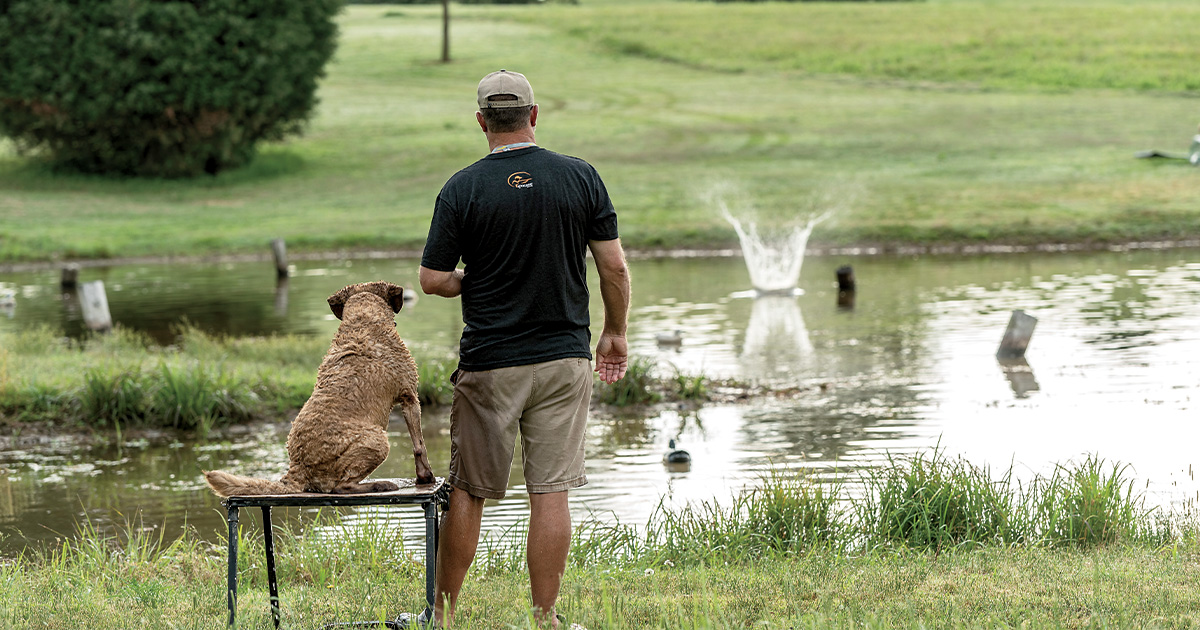
Ira McCauley is a practicing veterinarian and the founder of MOMarsh, which manufactures a variety of products for waterfowlers and their retrievers. He is also part of the team that started Habitat Flats Kennels several years ago. “I can’t tell you how often I see dog handlers get frustrated when their dogs don’t behave the way they want them to,” he says. “In a majority of those situations, their dog hasn’t been introduced to the event that is confusing them.
“It isn’t fair to expect a dog to be perfect, especially when he’s experiencing something for the first time on opening day,” McCauley continues. “How many guys bumper-train their young dogs and then just expect them to figure out everything else for the first time on opening day? Many hunters rarely have their retrievers practice things like getting in a dog blind covered in corn stalks, sitting still in a dog box in a pit, jumping in and out of a truck bed, climbing in and out of a boat, or swimming in a vest. Every aspect of a hunt should be practiced ahead of time.”
McCauley advises dog owners to maintain focus on their retriever during the first outings of the pup’s inaugural hunting season. “Once the season begins, a handler should leave his shotgun at home for the first few hunts, especially with younger dogs. It’s tough to do, especially when ducks are flying. Additionally, a young retriever’s owner should only hunt with one or two hunting partners, so the environment isn’t too stimulating. I always advise that, early on, a handler should let the other guys shoot so that he can focus on his dog getting acclimated to all the excitement and the new surroundings.”
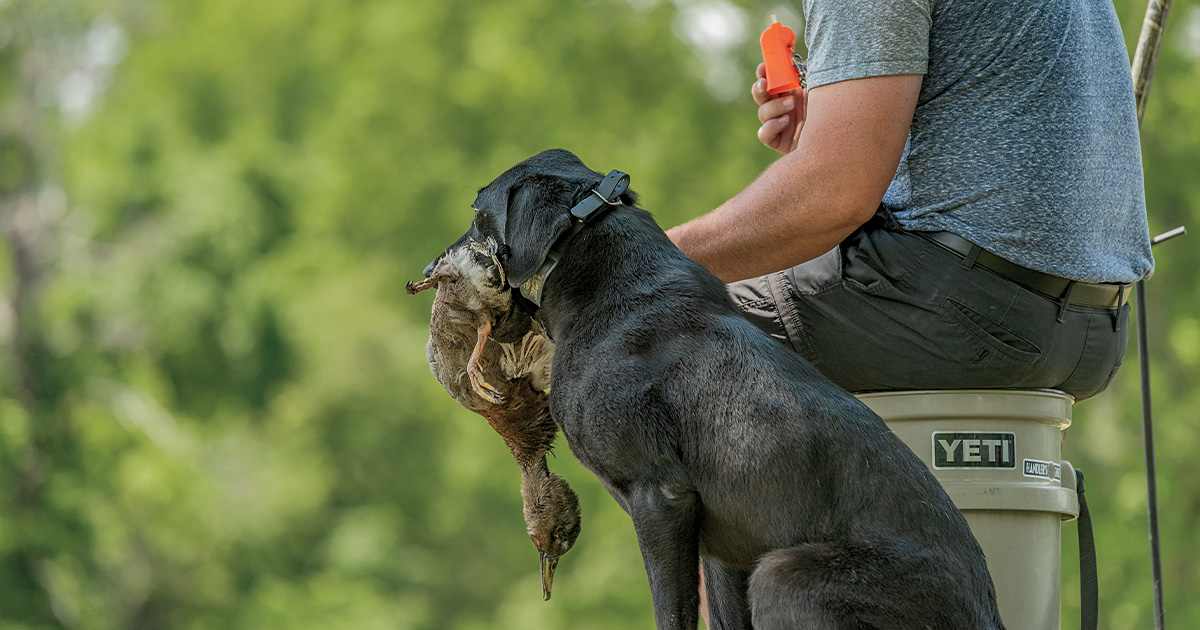
Make your training as close to real hunting as possible by incorporating things like dog stands, decoys, and real birds into your preseason work.
Several years ago, I took a young pup on a hunt. She was completely flabbergasted by her first taste of feathers. She had been exposed to gunfire, but in the heat of the hunt, she became distracted by all of the shooting. Richards says that to prevent these kinds of situations it’s important to build a young retriever’s confidence through exposure and repetition. “We actually shoot live birds weekly in training,” she says. “It’s tough to simulate real hunting without real birds. A dummy can only do so much. A dog will react very differently with a real bird than he will with a bumper. Using frozen birds is also a good method of transitional training. Anything is better than a bumper.
“Make the training as realistic and fun as possible,” Richards says. “If you want a dog to excel in high-intensity environments, you have to simulate high-intensity environments in your training. If nothing else, use a starter pistol before throwing your dummies. Then upgrade to a shotgun when appropriate.”
Stewart says that training with more than one dog at a time can teach and reinforce several different retriever skills. “If you hunt with multiple dogs, definitely practice with multiple dogs,” he says. “Have your buddies come over with their dogs. Use a hand-thrower to shoot some clay targets, and then throw a bumper after every third or fourth clay. Only send one dog at a time. You’ll end up improving steadiness, memory, teamwork, patience, delivery to hand, and honoring the handler all at once. Do it out of a dog hide to make it more complex, and rotate hunters and dogs. It’s a great exercise that covers a lot of skills.”
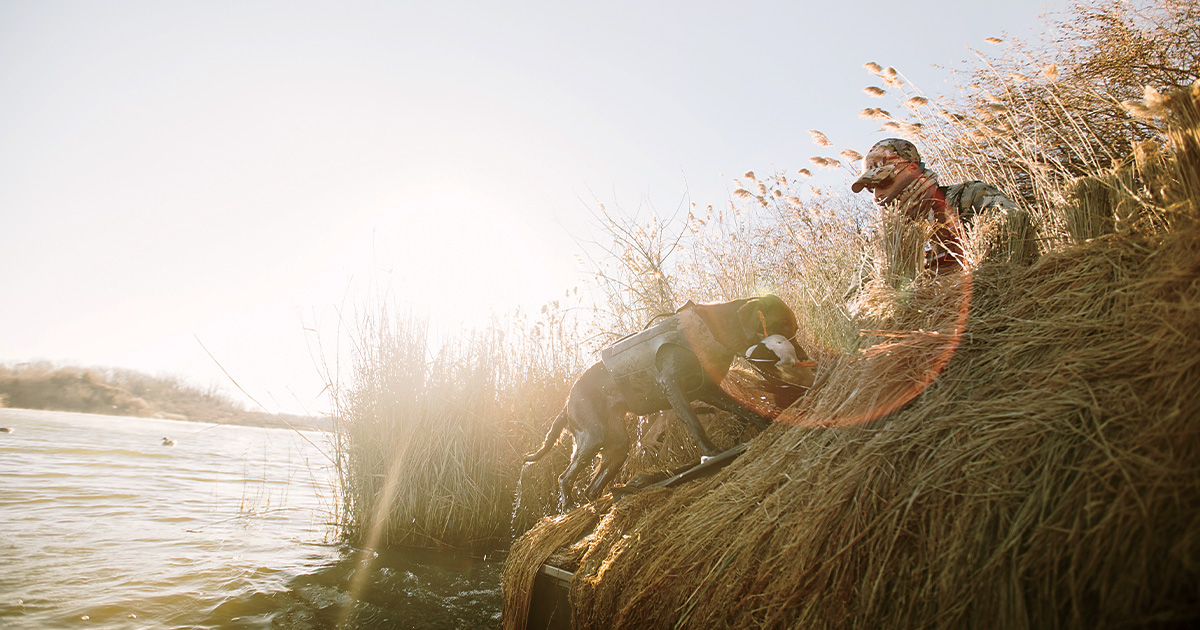
The relationship between hunter and retriever should be a partnership. For that partnership to be successful, both parties need to benefit. Different dogs are motivated in different ways, but McCauley says making the training fun is the best way to get the most out of your gundog.
Positive reinforcement cements the relationship, McCauley says. “Everyone is better off with a positive result with the least amount of pressure. Any time we can get a desirable result with praise, that’s great. If a dog is struggling, think about changing locations, removing an obstacle, or removing some barriers so that the task is easier for the dog. Then praise the dog for his success and build from there to make the same task more difficult. That will lead to a better dog and a better connection between the two of you.”
The benefits of diligent training are mutual, McCauley adds. “Practicing with your dog is good for the dog and good for you. We all have bad habits as handlers, and it’s great for your dog when you become a better teacher.”
Ducks Unlimited uses cookies to enhance your browsing experience, optimize site functionality, analyze traffic, and deliver personalized advertising through third parties. By continuing to use this site, you agree to our use of cookies. View Privacy Policy